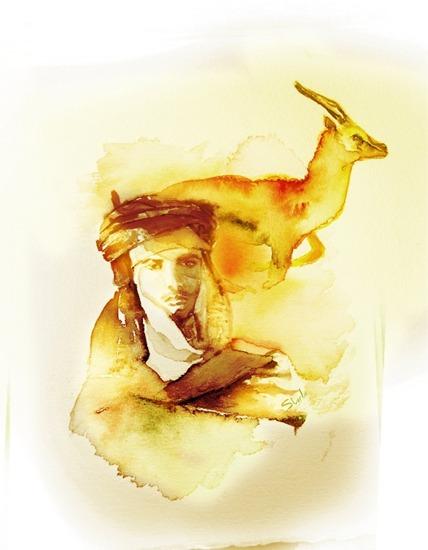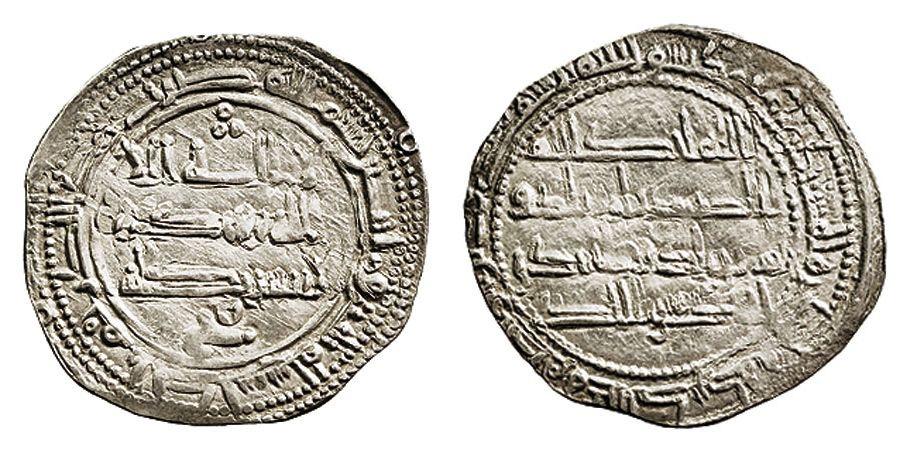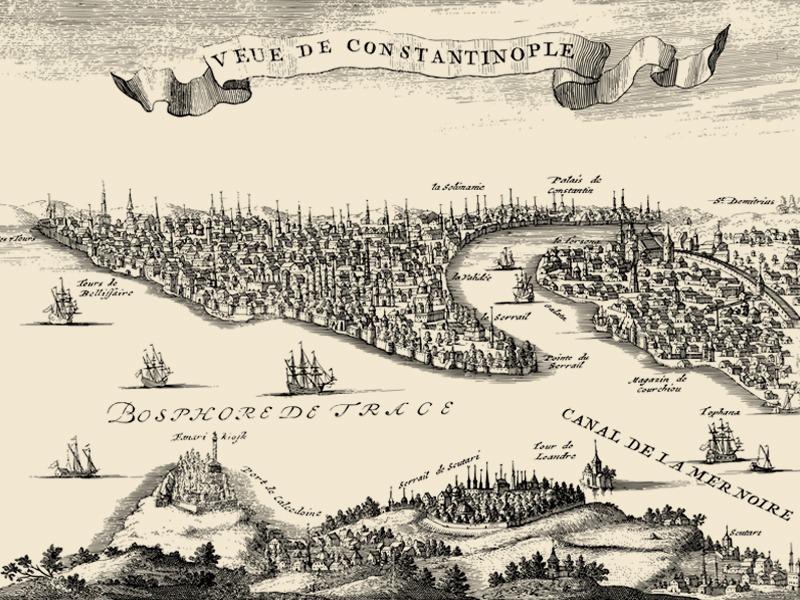
Al Ghazal, from Byzantium to the Viking country
Part I
By Jesús Cano. Arabist
By the mid-9th century travelling across the Mediterranean could be very dangerous, especially for an old man like al-Ghazal, who had earned a position in the Cordoban court good enough to be put out on such a hazardous endeavour.
As Ibn Hayyan tells in his al-Muqtabis II, when the emir of al-Andalus, Abd-er-Rahman II, chose Yahya ben Hakam al Bakri, known as al-Ghazal, to be sent to Constantinople as ambassador, “the poet found this painful and requested to be released from travelling”. The honours that such a mission might allegedly bring him, like the experience of knowing the court of Byzantium −something that would sbe unaffordable for a young man− looked to be rather a trap from the enemies of this wise old fox so experienced in palace intrigues. These, apparently, were not few in a court where it was quite usual to walk on the razor’s edge. Al-Ghazal himself composed these verses expressing his fears:
“Some say that al-Gazal is smart.
And, after being consulted, he was the one proposed.
That was not the reason, but that they considered me the easiest person to be dispensed with […]
I will go, yet those who are keen on hurting me
Will have to face the vagaries of fortune;
Hopefully my return will be fitting for God;
things do not depend on them”.
From these words, it can be deduced the (enormous) effort made by the aged poet to not abandon his privileged position next to the emir. He had employed much effort, almost all his life long, to get that far.
Despite it not being possible to say an accurate date for his birth between the years 770 and 773, we know that he came to the world on a farmstead in Jaen, which according to Ibn Hayyan was very popular. Little is known from his early years. He might had enjoyed a high social standing, enough to move to Cordoba, living nearby a vizier named al-Iskandari, where he starts flirting with power.

It is very apt to use the word “flirting” when he refers to Yahya Ibn al-Hakam al-Bakri nicknamed al-Ghazal, meaning the gazelle, according to Ibn Hayyan “because of his beauty, whereas others say that it was due to his fresh look, his beautiful figure and his graceful movements”, although it was maybe for all that.
But also, Ibn Hayyan says about him: “In addition to his brilliant education, he was a varied wise man, with a great abundance of knowledge, who was able to speak in frivolous attitude, humorous, profound, and playful giving news”.
We can think therefore that al-Ghazal enjoyed other appeals than his beauty.
Watercolour ©Belén Esturla Thanks to the kind collaboration of AramcoWorld magazine.
Al-Ghazal devoted several panegyrics to him, although it seems that this did not help him to obtain a privileged position, although to tell the truth, he was already included in the list of poets-astrologers. He finally triumphed in the court of Abd-er-Rahman II, and became his favourite poet, although, as we will see e had his ups and downs.

Silver dirham of ab-er-Rahman II of Cordoba minted in the year230 of the Hegira.
Be it as it may, al-Gazal was one of those rare people who had both a natural beauty and a tongue of equally brilliance, a combination that helped him win many battles both in the court and in literary competitions, which turned against him much to his regret, when he was appointed Umayyad ambassador to the Basileus Theophilos Al-Ghazal tried to avoid the journey by all means, fearing not only for his own life but, above all, for the future of his family. Yet, hearing his complaints, Abd-er-Rahman assured him that this family would get enough income from that moment on to live peacefully while he was away. This did not really reassure Yahya, who, in an attempt to convince the emir, poured out all his talent before him by creating a great many verses, some of them truly brilliant, reporting his worth as a man of letters.
What they offer to me in exchange to be absent, I think that
Despite being much, is despicable
I see death taking away life from the elusive roe deers
And catch them, as if they were birds, although in flight.

Once he had ample proof that Abd-er-Rahman’s decision was irrevocable, al-Ghazal had no choice but to obey.
He departed one day of year 225 of the Hegira (839-40 of the Christian era) and took with him as his right another Yahya, named Munayqilah, together with the Byzantine ambassador, who had travelled to Cordoba on a secret mission, that as it turned out, was no so secret, as the chronicles have echoed the story: to seal an alliance between the Byzantine empire and the Andalusi Emirate to counter the pact that the Abbasid Caliphate and the Aghlabids of Tunis had just established.
There is no doubt that al-Ghazal was soon to discover that his fears of the danger he was facing were true. As soon as they boarded, on the coasts of the Kura of Tudmir (Murcia), the sea became so turbulent that the traveller feared for their lives. They were finally saved, but the impression was so strong that our poet-ambassador reluctantly wrote some improvised verses:
“Shrouded in the gusts of East and North,
Which ripped two sails from the eyelets of those halyards
And the angel of death rode straight ahead towards us.
BIBLIOGRAPHY
|

